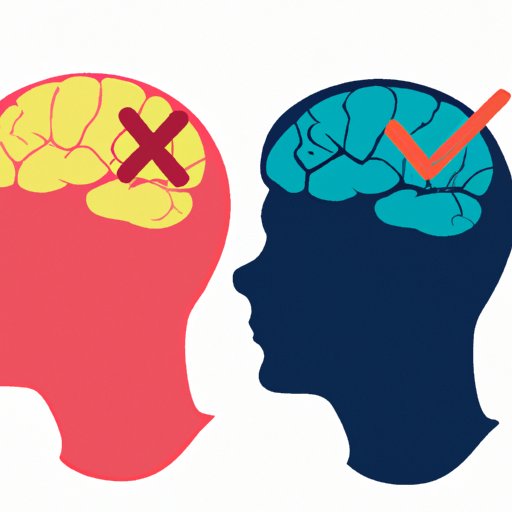
I. Introduction
The brain is one of the essential organs in our body, and it is critically important to keep it active and healthy. Our brain plays a vital role in controlling every other function in the body, and if it’s not functioning correctly, it can lead to cognitive decline.
The purpose of this article is to explore various ways to exercise your brain to improve cognitive function, memory, focus, and overall health. This article will explain the importance of exercising the brain and discuss popular brain exercises as well as other activities that help to keep the brain active.
II. The Importance of Exercising Your Brain
An active brain plays a crucial role in our overall health and well-being. Keeping your brain active through exercises can improve cognitive function, slow down cognitive decline, and prevent memory loss. Our brains change naturally as we age, but physical exercise, mental stimulation, and a healthy diet can help to delay cognitive decline.
Exercising the brain is just as important as exercising the body, as it can reduce the risk of developing cognitive diseases like Alzheimer’s and dementia. Some studies also suggest that brain exercises can improve creativity and mental agility.
III. Benefits of Brain Exercises
Brain exercises are activities that work out the brain. These exercises can help to improve working memory, increase concentration, and promote overall cognitive health, and many types of research support the benefits of brain exercises. These exercises also help your brain to create new connections between nerve cells, which can slow down cognitive decline.
IV. Popular Brain Exercises
Brain games such as crossword puzzles, Sudoku, and other similar games are famous for challenging the brain. Not only are they fun, but they also help with cognitive function. These games can improve memory capacity, problem-solving skills and boost overall brainpower. Other popular brain exercises include learning a new skill or language, playing a musical instrument, and doing jigsaw puzzles. Each exercise targets various cognitive functions, and they all contribute to overall brain health.
V. Learn Something New
Learning a new skill, language, or subject can be an excellent way to exercise the brain. By challenging yourself to learn something new, you not only learn new skills and information, but you are also challenging your brain to learn and retain new information. Research suggests that learning new things can improve cognitive function, memory, and overall brain health.
VI. Meditation and Mindfulness
Meditation and mindfulness practices have been used for thousands of years to reduce stress and improve focus. Meditation helps to calm the mind and reduce the effects of stress on the brain. Regular meditation can increase self-awareness and improve concentration and memory. Mindfulness also helps to improve cognitive function and reduce the risk of cognitive decline in the elderly.
VII. Physical Exercise
Physical exercise is not just good for the body but also the brain. Regular exercise increases the oxygen supply to the brain, which helps to improve cognitive function, memory, and concentration. Exercise encourages the production of new brain cells, which can reduce cognitive decline and improve overall brain health. Engaging in aerobic exercise or going for daily walks can help to keep both the brain and body healthy.
VIII. Incorporating Brain Exercises Into Daily Life
It is easy to incorporate brain exercises into your daily life. Simple things like reading, using your non-dominant hand to complete tasks, and taking a different route to work can challenge the brain and keep it active. Brain games and puzzles, like Sudoku or crossword puzzles, can be added to your daily routine as breaktime activities.
Other ways to keep the brain active include socializing with friends and family, traveling to new places, or even learning how to cook a new dish. The goal is to challenge the brain regularly and prevent it from settling into routine habits.
IX. Conclusion
Exercising your brain is as important as exercise for your body. Simple exercises like brain teasers, physical exercises, meditation, learning new things, and others can help keep the brain active and healthy. The ultimate goal is to challenge the brain regularly and prevent it from settling into routine habits, keeping it engaged and active.
Incorporating these various exercises into your daily life can help to maintain cognitive function, delay cognitive decline, and improve memory and focus.
Overall, taking care of your brain is essential, and the benefits of brain exercises are too many to ignore. So start working on keeping your brain active today, and enjoy a vital, healthy brain for years to come.





